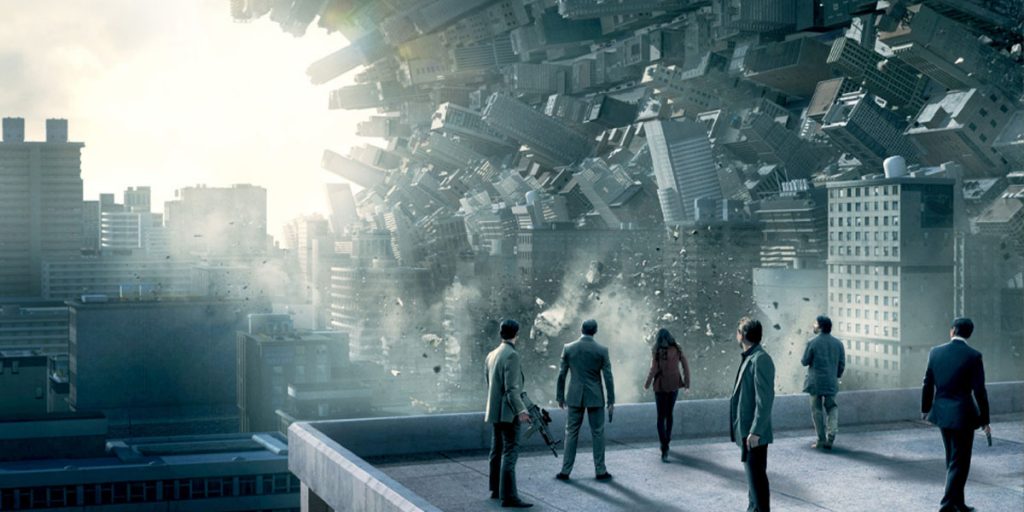To soften the wait for Tenet, we asked our writers to share their favorite Christopher Nolan films, from Batman Begins to Memento.
Christopher Nolan’s Tenet is one of the films that has suffered the most during the pandemic. Originally scheduled for July 17th, then pushed back to July 31st and eventually postponed a second time to August 12th, the theatrical relase for Nolan’s highly anticipated sci-fi thriller has been delayed so many times that every new announcement is now received with skepticism from the Inception director’s fans. According to Variety, the film is now scheduled to premiere internationally, in 70 countries, on August 26th, before its US release in select cinemas on September 3, which means that Tenet might still turn out to be the movie that marks our return to the big screen, after all.
Whether or not we’ll actually get to see Tenet this summer, a celebration is due to Christopher Nolan, one of the most unconventional directors of our time, and the man who revolutionised the industry with his nonlinear storytelling, complex character development, haunting aesthetics and highly philosophical investigations on time, memory, identity and the very essence of humanity. On what was originally meant to be one of the many release dates for Tenet, we asked our staff to share their favorite Christopher Nolan films: from Batman Begins to Memento, here’s what they picked.
BATMAN BEGINS
SERENA
Year: 2005
Genre: Crime Drama / Superhero
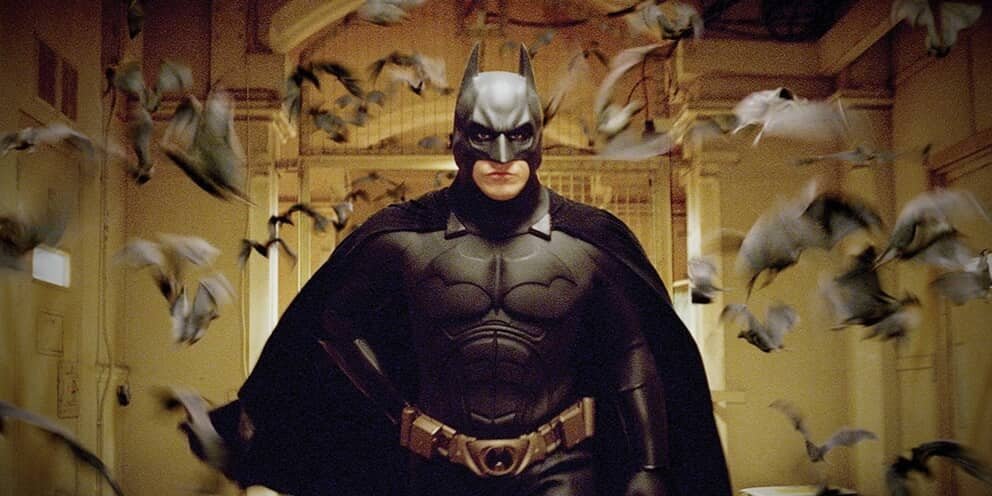
In 1940, DC Comics introduced us to a “weird figure of the dark” that was going to revolutionise the way we think about superheroes. If Superman represented the post-World War II ideal of the superior, exceptional man who was going to save the world by leading the soldiers to victory, Batman was just as imperfect, obsessed and morally flawed as the villains he faced. If Tim Burton’s Batman transposed this “caped crusader” onto the big screen for the first time, it is only the advent of Nolan’s Batman Begins that made it possible for the fascinating nature of the character to be fully explored in cinematic form, with all his imperfections and complexities.
Batman Begins is an incredibly moral film. Set in a Gotham City that captures the corruption and uncertainty of our modern times, it’s the film that showed audiences that a superhero movie could also be an intense crime drama and a serious investigation on justice and morality. As visually stunning as it is meaningful, Batman Begins is the film in which Nolan redefined the superhero genre by adding realism to the formula, with a tormented, lonely Batman (Christian Bale) who makes questionable choices, “falls so that he can learn to pick himself up” and eventually becomes the “symbol” Gotham city needs him to be. Batman Begins is epic, clever, tense, wonderfully dark and exquisitely complex, with captivating characters brought to life by a stellar cast, from Cillian Murphy’s a truly disquieting, nightmare-inducing Scarecrow to an exceptional Gary Oldman as Commissioner Gordon – perhaps the only real hero in the Batman universe. After all, “it’s not who you are underneath; it’s what you do that defines you”.
THE DARK KNIGHT
ZOE
Year: 2008
Genre: Action / Crime Drama / Superhero
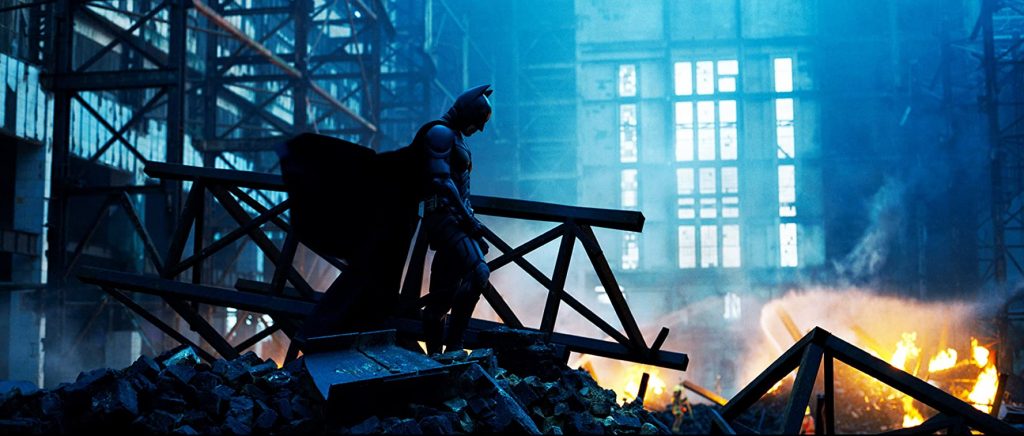
Though Batman Begins was a riveting reinvention of the Batman mythos on its own merits, when Gary Oldman’s Commissioner Gordon flashed a Joker playing card right before the credits rolled, audiences around the world erupted with exuberant enthusiasm, as they knew that writer-director Christopher Nolan’s follow-up to this outstanding origin story would be even bigger and bolder – and boy, were we right. What can be said about The Dark Knight that hasn’t already been articulated over the past 12 years? Simply put, Nolan’s stupendous superhero sequel crushed the constraints of the comic-book genre and reinvigorated these tired tales with a raw realism that made it seem as if these characters could leap right off the screen and live right beside us. The Dark Knight took a category of film formerly associated with camp and comicality and showed how superhero stories could evolve and become both scorching societal commentaries and audacious artistic achievements as well. Its elaborate exploration of the thin line between order and anarchy is still sadly just as timely today, but this is just yet another example of the picture’s prophetic prescience and adds further credibility to its status as a modern-day “classic”.
And, finally, any discussion of The Dark Knight must contain commendation for Heath Ledger’s chilling portrayal of the “Clown Prince of Crime,” since his Academy Award-winning performance as the Joker has proven to persistently petrify viewers for over a decade and represent audacious and assured method acting at its finest. Though many will try to mimic his manic mannerisms for years to come, Ledger’s legendary work will continue to live on as not only one of the most daring depictions of an antagonist in cinematic history, but also as merely one of the most marvelous feats of complex and compelling characterization ever captured across the entire medium.
THE DARK KNIGHT RISES
ETHAN
Year: 2012
Genre: Action / Crime Drama / Superhero
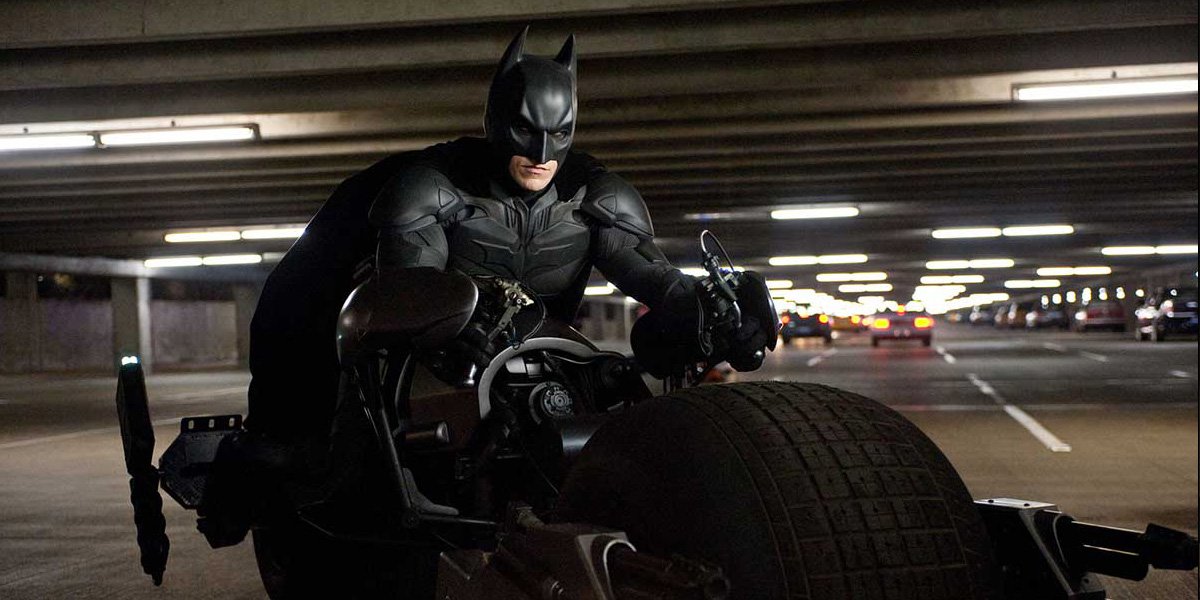
 loudandclearreviews.com
loudandclearreviews.comNolan had a tall order to fill when he began production on what would become The Dark Knight Rises. The original vision included Heath Ledger’s Joker as a character, but the idea was scrapped after Ledger’s passing and, as such, he was hesitant to return for a third film. With the massive success of The Dark Knight and Inception (the latter of which scored him two Oscar nominations), the pressure was enormous to deliver a satisfying conclusion to one of the best superhero sagas ever seen on film. The additional misfortune of having to come two months after the mega-hit that was Joss Whedon’s The Avengers meant that many were skeptical on whether The Dark Knight Rises could measure up both to Nolan’s previous output and the films made by rival studios.
Thankfully, all fears were quenched when The Dark Knight Rises premiered to both massive acclaim and box office returns. The conclusion to the trilogy sits as both the highest-grossing Nolan film and the most successful Batman movie by a healthy margin. Nolan also nailed the trilogy’s ending by crafting a story that truly embodies the phrase “modern epic.” With its lengthy runtime, large cast of characters, and sprawling narrative, The Dark Knight Rises is reminiscent of the biblical dramas and historic epics that populated Hollywood in the 1940’s and 1950’s while exploring issues that face our society such as mass incarceration and class disparity. Although it has since begun to fall out of favor with comic book fans, The Dark Knight Rises demands a reevaluation as one of the boldest superhero films in recent memory, and a terrific film on its own merits.
DOODLEBUG
NILS
Year: 1997
Genre: Short Film / Fantasy / Mystery
A far cry from later blockbusters marked by dense, complex time-bending plots and ambitious set pieces, this three minute short Nolan made while attending university is one of the most intriguing entries in his filmography and offers a curious glimpse into his cinematic imagination. Doodlebug takes us on the hunt for an unknown pest as a skittish man stumbles around his flat, armed with his shoe and poised to strike at any moment. Tension builds at clocks tick with measured unease and the startling ring of a telephone, until a surreal twist reveals itself. It’s curious to see this foreshadow later Nolan films—for instance, mismatched clock faces hint at a fascination with the theme of time while a moment of recursion hints at the mind-bending narratives of his big-budget sci-fi epics.
Even working with a low budget, Nolan clearly shows creative ambition and signs of growing talent. Shot in grainy black and white 16mm, tight shots, close-ups, and slow zooms build a palpable claustrophobia, while rough visual effects craft a gritty aesthetic that adds an unsteady, derelict psychological element. Despite a lack of dialogue, Jeremy Theobald’s unnamed character projects anxiety and delirium in his jumpy movements and facial gestures, especially in the darting eyes that appear over the title card. Even in its brevity, Doodlebug builds a distressing sense of tension and paranoia, along with a conclusion that adds an unseen dimension beyond the short sequence of events seen onscreen.
DUNKIRK
ASHLEIGH
Year: 2017
Genre: War
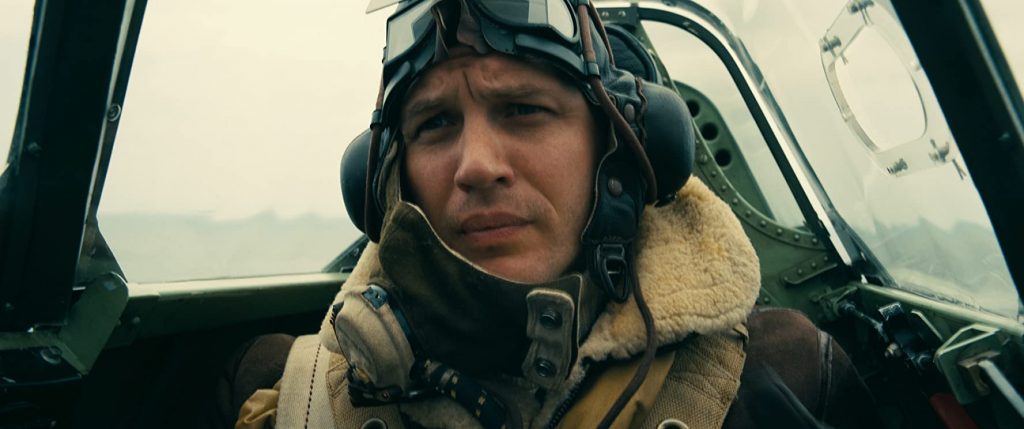
Some of the most influential movies of all time are war films, and Dunkirk is no exception. On paper, Dunkirk shouldn’t really work, as it doesn’t have a true main character: the film revolves around an entire group of soldiers during the 1940 evacuation of Dunkirk. It also doesn’t have any true antagonist: you never truly see the enemies firsthand, only looming in the shadows. In a war movie, this can be quite risky because the viewer could lose investment in its events, but, if anything, Nolan manages to make it feel more real. Everything we witness feels like we’re looking in from the outside, and all of these characters feel like ghosts lurking around the battlefield, drained from the horrors of what they have to endure, exactly how you would imagine this group to actually be. We never spend enough time to learn too much about them, nothing much apart from their roles on the battlefield, but this makes the experience all the more harrowing.
With no true plot or developed character in sight, Nolan gives himself the room he needs to flash his unique approach to the art of filmmaking, and constructs everything meticulously: we flip back between several characters with several roles, and the way each of them moves and reacts is extremely specific and thought out. If anything, by not focusing on a single character, Nolan gives the audience an even larger sense of dread. We’re essentially viewing the war from all angles, are just as disoriented as the soldiers due to not knowing where the enemy is just as they do.
The film manages to find its distress without being graphic, which is surprising considering the terror of war is typically found within its gruesome violence. Dunkirk uses its scope, its score, to tell something almost completely visually, a feat few directors can actually accomplish, especially within this landscape. Dunkirk is one of Nolan’s best films, comparable to many greats from the last decade, and an exemplary use of visual and disjointed storytelling that only Christopher Nolan could pull off.
INCEPTION
MORGAN
Year: 2010
Genre: Sci-Fi
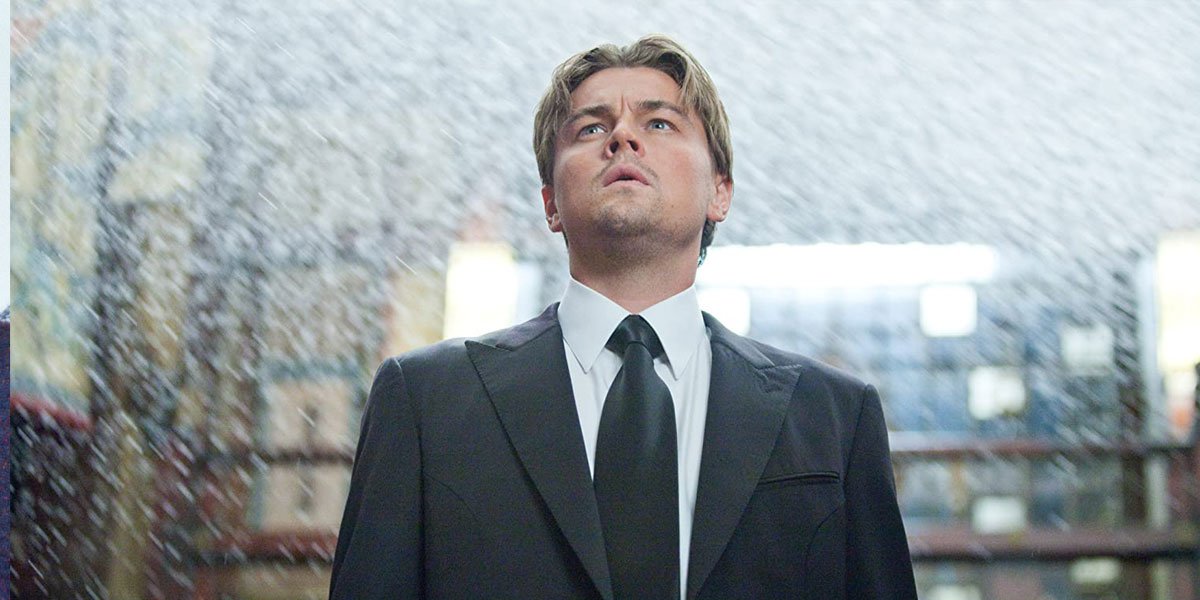
 loudandclearreviews.com
loudandclearreviews.comIt’s been barely over a decade since Christopher Nolan’s 160 million-dollar, original tentpole film, Inception, absolutely crushed the box office and garnered 8 Oscar nominations. Though the film’s iconic foghorn audio effect has been duplicated to no end, few films since have been to replicate its scale, design, and all-star cast. With Leonardo DiCaprio, Tom Hardy, Joseph Gordon-Levitt, Ken Wantanabe, Marion Cottillard, Ellen Page, Cillian Murphy, and Michael Caine all amplifying the seemingly effortless, suave seriousness that Nolan brings to every feature. Backed by legendary composer, Hans Zimmer, and featuring lucratively impressive practical effects and stunt work, Inception is Nolan at his most emotional and experimental. A densely layered, metaphoric and yet still grounded, epic, with an uncertain, evocative ending that’s still being debated. As Tenet’s release draws nearer, there’s no more appropriate film of Nolan’s to revisit than Inception.
INTERSTELLAR
ADELE
Year: 2014
Genre: Drama / Sci-Fi
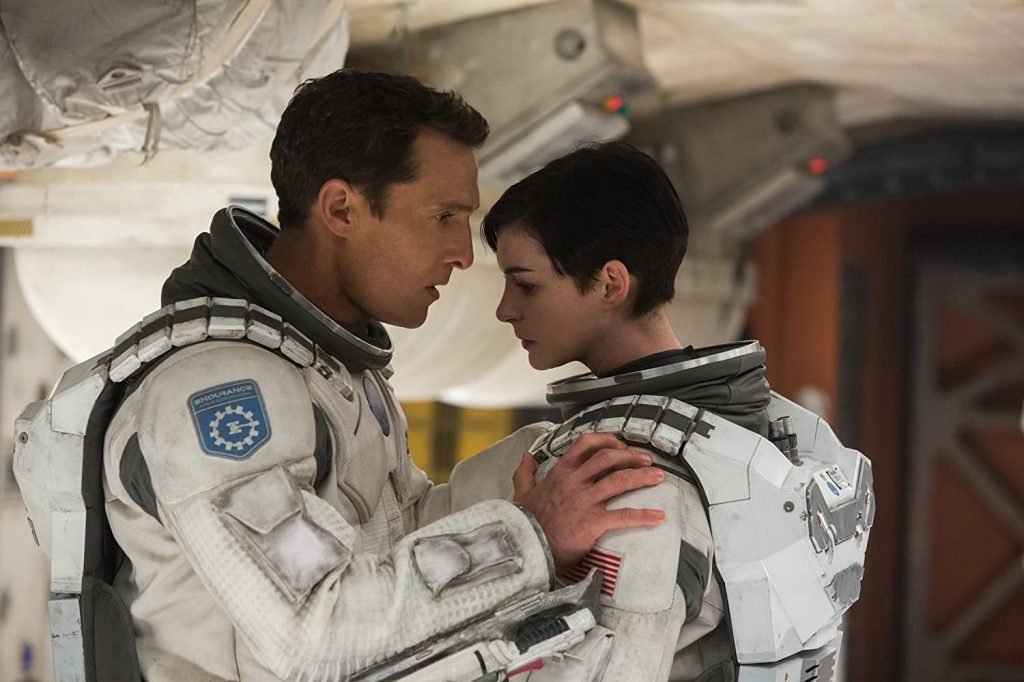
“Alright, alright, alright”. Matthew McConaughey’s breath-taking performance alone is enough to make you want to watch Interstellar, a stunning sci-fi drama where love saves the day. The Dallas Buyers Club actor plays Joseph Cooper, a father and former NASA pilot. When a mysterious wormhole appears in space, opening the path to a distant galaxy with potentially habitable planets, Joseph is recruited, among a team of pilots (including Dr Amelia Brand, played by Anne Hathaway), for a space mission to save humankind.
The climax of the movie is the “bookshelf scene” – possibly one of the best scenes in a sci-fi movie, which divided the audience in two when the film was released, back in 2014. Having watched Interstellar over and over, I am still simply mesmerized and mind-blown by it: in what is clearly a stroke of genius, Nolan gives his characters access to a fifth dimension where all the timelines of the universe – or all the different possible arrangements of time itself – exist, all at once.
Slightly different from Christopher Nolan’s other movies, Interstellar ultimately explores the kind of human connection that lasts against all odds. In Dr Brand’s words, “Love is the one thing we’re capable of perceiving that transcends dimensions of time and space. Maybe we should trust that, even if we can’t understand it”.
INSOMNIA
BERNARD
Year: 2002
Genre: Thriller
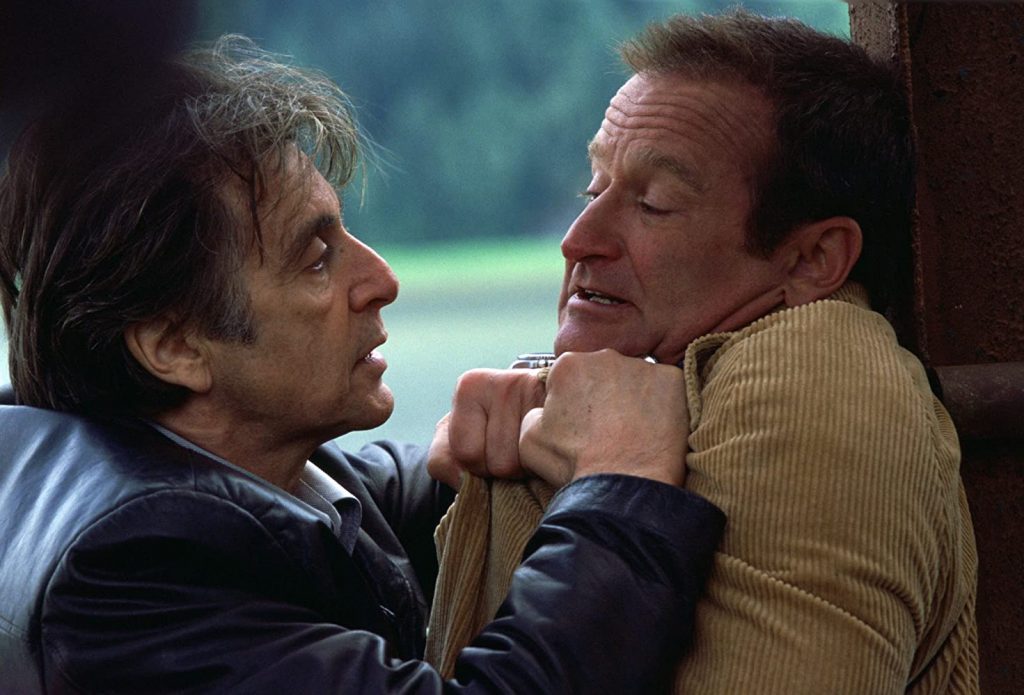
Insomnia is an interesting work in Christopher Nolan’s filmography as it is certainly his most character driven film. Long before massive budget time travel thrillers, Nolan told a small story about two Los Angeles detectives deployed to Nightmute, Alaska, one of those towns where the sun shines nearly 24 hours per day for a stretch of the year, to investigate a shooting death in the town. The setting makes for an interesting visual dynamic, as Nolan inverts the usual noir color palette. Al Pacino gives one of his best, most engaged performances of the decade; he seems especially game in scenes with his murderous nemesis, played by Robin Williams.
Much as Nolan subverts genre tropes with the film’s visual palette, the casting of Williams as a brutal murderer is a wonderful way to undercut audience emotions. Williams is absolutely brilliant in the role – one of the best of his career. I cannot help but remark on the intelligence of the character work and Nolan’s ability to deftly handle extremely dark material. I love most of Nolan’s bombastic blockbusters, but I do miss his more human scale work.
MEMENTO
THADDEUS
Year: 2000
Genre: Thriller / Mystery
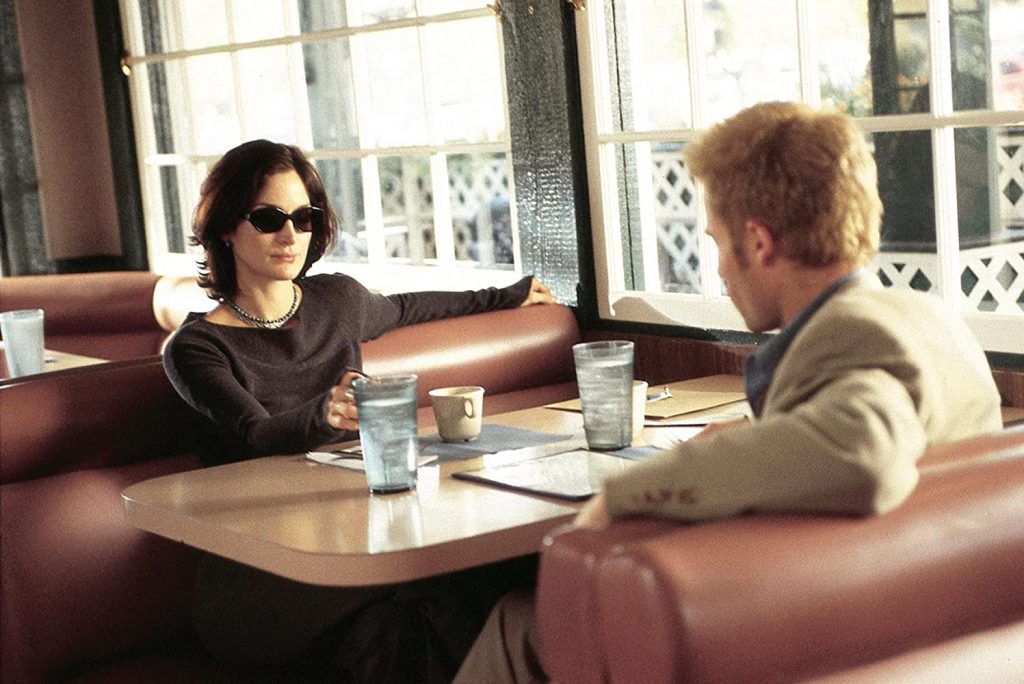
Memento is one of those films you probably know about a little bit even if you haven’t seen it. Famous for its backwards narrative and creative non-linear storytelling, it’s an early harbinger of what Christopher Nolan would be capable of later on in his career. A lot of his signature style is at play here: an off-kilter plot that makes you feel smart once you’re able to follow it, a mystery with perhaps an unconventional structure and/or solution, and plot twists that recontextualize the entire story. Outside of the famous plot device, the acting is also excellent, featuring stand out performances from a young Guy Pearce, as well as Carrie-Anne Moss and Joe Pantoliano, fresh from their Matrix success. It’s rare for a debut film to be good, let alone exceptional and career defining, but Memento isn’t most films. It showcases the potential and much of the realized talent of the 21st century’s most celebrated directors. If you’re interested in seeing where it all began, there’s a reason we still remember and celebrate Memento twenty years after its initial release.
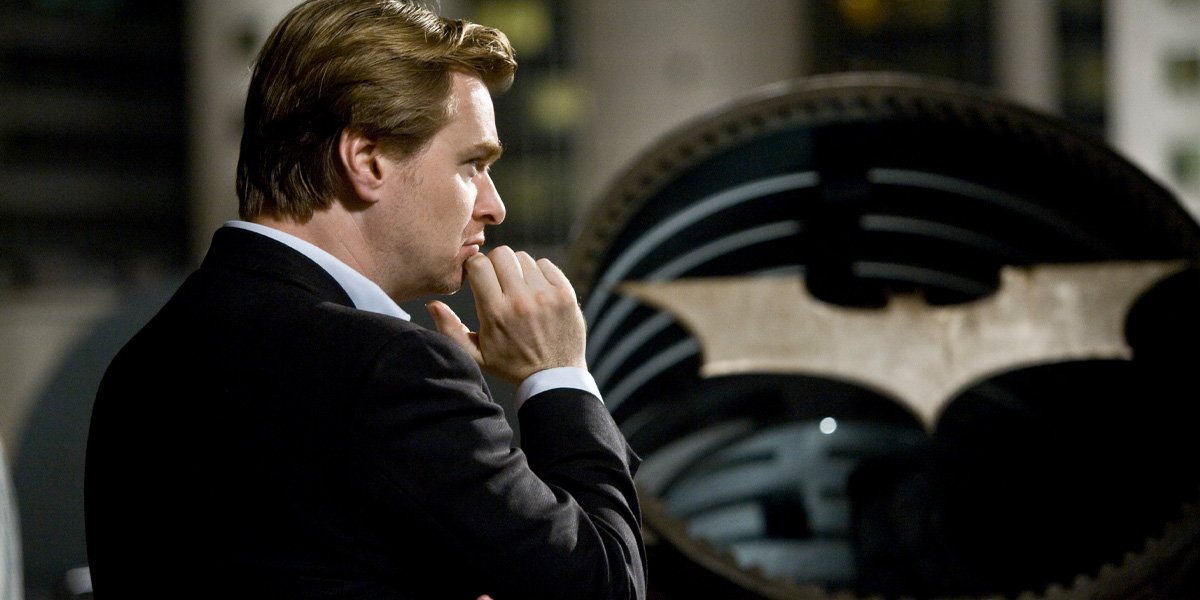
 loudandclearreviews.com
loudandclearreviews.com
